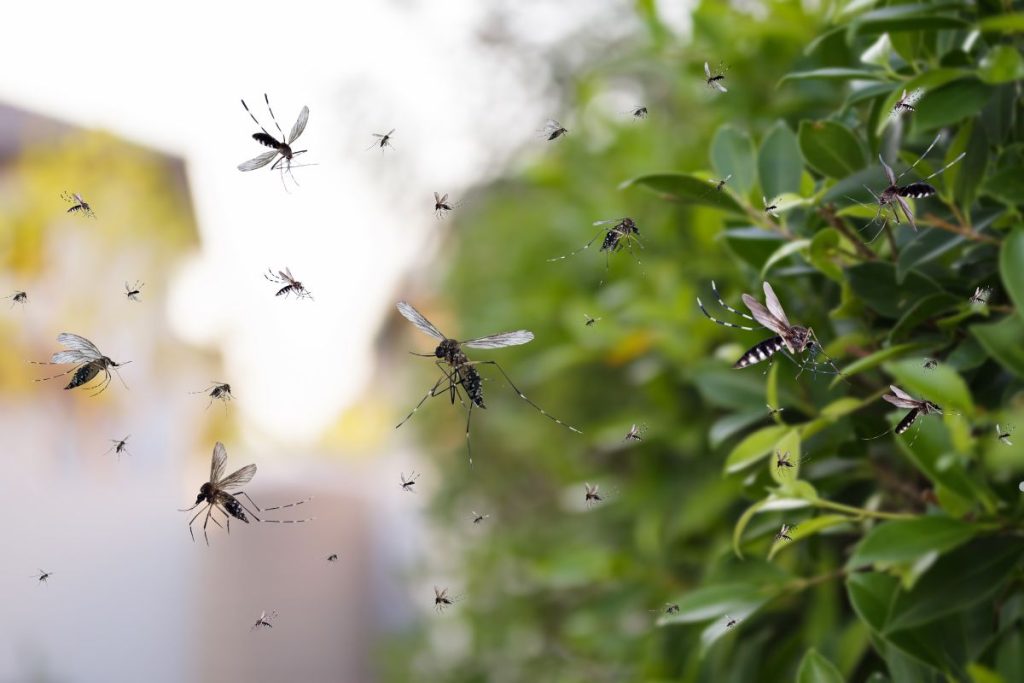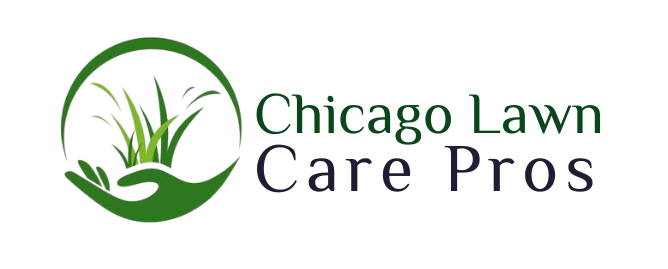
Mosquitoes can be a real headache, especially during the warmer months in Chicago. They buzz around, bite, and can even spread diseases. But don’t worry—there are plenty of ways to keep them in check. From simple DIY fixes to professional help, this guide will walk you through everything you need to know about mosquito control in Chicago.
Key Takeaways
- Understanding how mosquitoes behave in Chicago can help you stay ahead of their activity.
- Getting rid of standing water is one of the easiest ways to cut down on mosquito breeding.
- Neighborhood efforts and teamwork can make a big difference in mosquito control.
- Eco-friendly options like natural repellents and biological methods are worth exploring.
- Professional pest control services can offer effective and long-lasting results.
Understanding Mosquito Behavior in Chicago
Common Mosquito Species in the Area
Chicago is home to several mosquito species, but the ones that stand out the most are the Culex pipiens (commonly called the northern house mosquito) and Aedes albopictus (the Asian tiger mosquito). Culex mosquitoes are known carriers of West Nile virus, making them a significant concern for public health. Aedes mosquitoes, on the other hand, are aggressive daytime biters and can thrive in both urban and suburban settings. Knowing which species are around helps in targeting control efforts more effectively.
Seasonal Patterns and Activity
Mosquitoes in Chicago aren’t active year-round. They typically emerge in late spring when temperatures consistently rise above 50°F. Their activity peaks during the summer months, especially after rainfall, and starts to taper off in late fall. Keep in mind that mosquitoes are most active during dawn and dusk. Protective clothing like long sleeves and pants can help reduce the chances of bites during these high-risk times.
How Mosquitoes Thrive in Urban Environments
Urban environments like Chicago provide plenty of opportunities for mosquitoes to breed and thrive. Standing water is the biggest culprit—it can accumulate in everything from clogged gutters to abandoned tires. Additionally, the heat retained by concrete and asphalt creates warm microclimates that mosquitoes love. Even small amounts of water, like what you’d find in a bottle cap, can support mosquito larvae. To combat this, it’s essential to eliminate water sources and maintain cleanliness in shared spaces.
Preventative Measures for Mosquito Control in Chicago
Eliminating Standing Water Around Your Property
Mosquitoes need water to breed, even in the smallest amounts. Removing standing water is one of the simplest and most effective ways to reduce mosquitoes. Here’s what you can do:
- Empty out buckets, flowerpot saucers, and any other containers that collect rainwater.
- Change the water in birdbaths weekly to prevent mosquito larvae from maturing.
- Make sure your yard drains properly. Low spots where water pools can quickly become mosquito havens.
If you notice standing water in public areas, report it to help Chicago’s efforts in reducing the risk of the West Nile virus.
Using Mosquito-Repellent Plants and Landscaping
Believe it or not, some plants naturally repel mosquitoes. Incorporating these into your landscaping can help keep the pests away. Consider planting:
- Marigolds: Their scent deters mosquitoes and other insects.
- Lavender: Both beautiful and effective, lavender is a great natural barrier.
- Citronella grass: Often used in candles, this plant works well in gardens too.
Strategically placing these plants near patios, doorways, and windows can provide an extra layer of protection.
Proper Maintenance of Gutters and Drains
Clogged gutters and drains are mosquito breeding hotspots. Regular maintenance can make a big difference. Here’s how to stay on top of it:
- Clean your gutters at least twice a year to remove leaves and debris.
- Check that your downspouts direct water away from your home.
- Ensure storm drains near your property are clear and functioning.
A little effort in maintaining your property can go a long way in keeping mosquitoes at bay. Don’t underestimate simple fixes—they add up!
Community-Based Mosquito Control Initiatives
Neighborhood Clean-Up Campaigns
One simple way to tackle mosquitoes as a community is by organizing clean-up drives. These campaigns focus on removing trash, old tires, and other debris that can collect water and turn into mosquito breeding spots. Getting rid of standing water is one of the most effective ways to cut down on mosquitoes. Create a schedule for regular clean-up events, especially during the warmer months when mosquito activity peaks.
Collaborating with Local Authorities
Working hand-in-hand with city officials can amplify your efforts. The City of Chicago offers programs and resources that can help neighborhoods deal with mosquito problems. Residents can report problem areas, request inspections, or even get advice on controlling mosquitoes. Local authorities often have access to tools like larvicides and fogging equipment, which can be used to treat larger areas effectively.
Educational Programs for Residents
Education is key to long-term mosquito control. Hosting workshops or distributing flyers can teach residents how to protect their homes and families. Topics might include identifying mosquito breeding grounds, using effective repellents, and understanding the health risks mosquitoes pose. Knowledge empowers people to take action, making it easier for the whole community to stay safe.
Eco-Friendly Mosquito Control Solutions

Natural Repellents and Essential Oils
Ever tried using essential oils to keep mosquitoes away? It’s surprisingly effective and smells way better than chemical sprays. Lemon eucalyptus oil, for instance, is a top choice. Studies show it works almost as well as DEET. Other oils like lavender or peppermint can also help, though they might not be as strong. The best part? These oils are safe for kids and pets, making them a great option for families. Just mix a few drops with water or a carrier oil, and you’re good to go.
Biological Control Methods
This one’s a bit more science-y but super cool. Biological control is all about using nature to fight nature. For example, introducing mosquito-eating fish like guppies or goldfish into ponds or water features can help keep mosquito populations in check. Bacteria like Bacillus thuringiensis israelensis (Bti) are another option. They’re harmless to humans and animals but deadly to mosquito larvae. These methods are perfect for those who want to avoid pesticides altogether.
Sustainable Pest Management Practices
If you’re serious about going green, sustainable pest management is the way to go. Start by making your yard less mosquito-friendly. Eliminate standing water, use native plants that don’t attract mosquitoes, and keep your lawn trimmed. You can also opt for eco-friendly traps or barriers. For instance, some traps use CO2 to lure mosquitoes and then trap them without chemicals. These are a great way to reduce mosquitoes while being kind to the environment.
Going eco-friendly doesn’t mean sacrificing effectiveness. With the right approach, you can protect your family and the planet at the same time.
For eco-friendly mosquito control in Chicago, these methods not only work but also help create a healthier environment for everyone.
Professional Mosquito Control Services in Chicago
Choosing the Right Pest Control Company
Finding a pest control service can feel like a chore, but it’s worth the effort. Start by asking neighbors or friends for recommendations. Local companies often know the unique mosquito problems in Chicago better than national chains. Look for professionals who are licensed and insured. Don’t forget to read reviews and check if the company offers a satisfaction guarantee. This way, you’ll have some peace of mind knowing they stand by their work.
What to Expect During a Professional Treatment
When the pest control team arrives, they’ll usually start with an inspection. They’ll look for mosquito breeding spots like standing water or overgrown vegetation. Once they’ve scoped out the problem, they’ll apply targeted treatments. These might include sprays, fogging, or even larvicides for water areas. The process is quick—most treatments take less than an hour for an average yard. Afterward, you might be asked to stay indoors for a short time while the treatment settles.
- Inspection: Identifying problem areas
- Treatment: Applying mosquito control measures
- Follow-Up: Recommendations to keep mosquitoes away
Cost and Effectiveness of Professional Services
Hiring professionals isn’t cheap, but it can save you a lot of hassle. On average, mosquito control services in Chicago range from $50 to $150 per visit, depending on the size of your property and the severity of the problem. Some companies offer seasonal packages, which can be more cost-effective if you need regular treatments. While DIY solutions might seem cheaper upfront, they often don’t work as well or last as long. A professional service can cut down mosquito populations significantly, giving you a more comfortable outdoor space.
If you’re tired of battling mosquitoes on your own, calling in the pros might just be the relief you need. They handle the hard work so you can enjoy your yard again. Call us today and let us take care of the problem for you!
The Role of Technology in Modern Mosquito Control
Smart Mosquito Traps and Devices
Smart mosquito traps are changing the game when it comes to controlling these pests. These devices don’t just catch mosquitoes—they also collect data about their activity. Some traps even use CO2 or light to lure mosquitoes in, making them highly effective. What’s cool is that these traps can be monitored remotely, so you don’t have to keep checking them manually. They’re especially useful in areas with high mosquito populations, like near water or dense vegetation.
Data-Driven Mosquito Monitoring
Using data to track mosquito activity is a big step forward. With tools like sensors and GPS, experts can map out where mosquitoes are most active. This helps in targeting the right areas for control efforts. Data can also show trends, like when mosquito activity peaks during the year. By understanding these patterns, communities can plan better and waste less time and money on ineffective methods. It’s like having a roadmap for fighting mosquitoes.
Innovations in Mosquito Repellent Technology
New mosquito repellents are more advanced than ever. From wearable devices that emit ultrasonic waves to patches infused with natural oils, the options are growing. Some companies are even working on sprays that last longer and are safer for the environment. These innovations are making it easier for people to protect themselves without relying on harsh chemicals. It’s a win-win for both humans and the planet.
Technology is making mosquito control smarter, faster, and more efficient. By combining tools like smart traps, data analysis, and innovative repellents, we’re getting closer to keeping these pests in check for good.
Health Risks Associated with Mosquitoes in Chicago

Diseases Transmitted by Mosquitoes
Mosquitoes are more than just a nuisance—they’re carriers of some serious diseases. In Chicago, the most common mosquito-borne illnesses include West Nile virus, La Crosse encephalitis, and, though rare, dengue fever. West Nile virus is the most prevalent in the region, with cases typically peaking during the late summer months. Symptoms can range from mild, flu-like discomfort to severe neurological complications. While rare, these diseases can have long-term effects, so it’s important to stay vigilant.
Protecting Vulnerable Populations
Certain groups are at higher risk when it comes to mosquito-borne illnesses. Older adults, young children, and people with weakened immune systems are particularly vulnerable. To protect these groups, it’s a good idea to:
- Use insect repellents with EPA-approved ingredients like DEET or picaridin.
- Install and maintain window and door screens to keep mosquitoes out.
- Dress in long sleeves and pants, especially during peak mosquito activity times like dusk and dawn.
Recognizing and Treating Mosquito-Borne Illnesses
Spotting the signs of a mosquito-borne illness early can make a big difference. Common symptoms include fever, headache, muscle aches, and fatigue. In severe cases, individuals may experience confusion, seizures, or even paralysis. If you or someone you know shows these signs after a mosquito bite, seek medical attention immediately.
| Disease | Common Symptoms | Severe Symptoms |
| West Nile Virus | Fever, headache, body aches | Neurological issues, paralysis |
| La Crosse Encephalitis | Nausea, vomiting, drowsiness | Seizures, brain inflammation |
| Dengue Fever | High fever, joint pain, rash | Bleeding, organ damage |
Mosquito-borne illnesses might seem rare, but they can strike when you least expect it. Taking simple precautions can go a long way in keeping you and your family safe.
Wrapping It Up
So, there you have it—some solid ways to keep mosquitoes at bay in Chicago. It’s not about doing just one thing; it’s about mixing a few strategies that work for your home and lifestyle. Whether it’s using screens, getting rid of standing water, or trying out natural repellents, every little bit helps. And hey, if you’re still struggling, don’t hesitate to call in the pros. Contact us for expert help. Mosquitoes might be annoying, but with a bit of effort, you can definitely keep them under control. Good luck, and here’s to fewer bites this summer!
Frequently Asked Questions
What are the most common types of mosquitoes in Chicago?
In Chicago, the most common mosquitoes are the Culex and Aedes species. These mosquitoes are known to spread diseases like West Nile virus and can be quite a nuisance during the warmer months.
When are mosquitoes most active in Chicago?
Mosquitoes are usually most active from late spring to early fall. They tend to come out more during the evening and early morning hours when the weather is cooler.
How can I stop mosquitoes from breeding around my home?
You can prevent mosquitoes by removing standing water from places like flower pots, bird baths, and gutters. Mosquitoes lay their eggs in water, so keeping your yard dry helps a lot.
Are natural mosquito repellents effective?
Yes, natural repellents like citronella, lavender, and eucalyptus oils can help keep mosquitoes away. While they may not be as strong as chemical sprays, they’re a safer option for some people.
What should I look for in a mosquito control company?
Choose a company with good reviews, proper licenses, and experience in mosquito control. It’s also helpful if they offer eco-friendly solutions to protect the environment.
Can mosquitoes really make people sick?
Yes, mosquitoes can transmit illnesses like West Nile virus and, in rare cases, other diseases. It’s important to protect yourself with repellents and by wearing long sleeves when mosquitoes are active.
Call us to learn more about how to stay safe and protect yourself from mosquito-borne illnesses.

